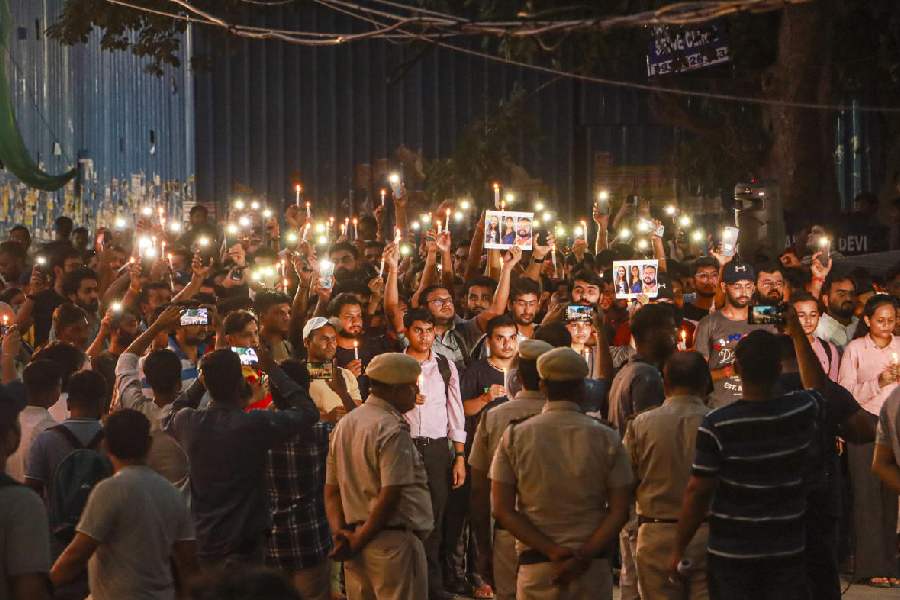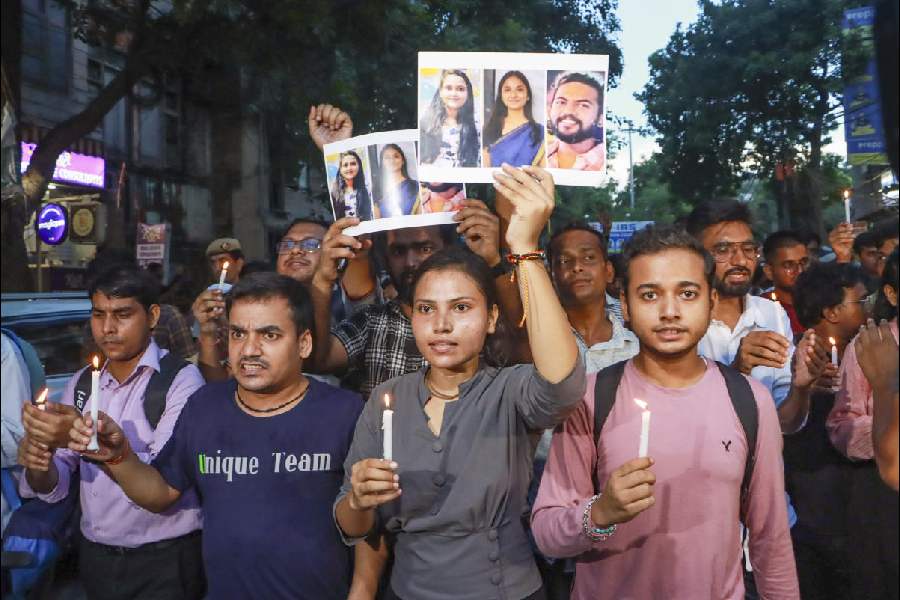The coaching business, boosted by the widened sweep of nation-level MCQ tests, has seen its volume more than double in four years, suggests an analysis of data provided by the government to Parliament.
In a written reply to the Rajya Sabha on July 24, minister of state for education Sukanta Majumdar provided year-wise details of the total GST collected from coaching institutes, which pay 18 per cent tax on revenues from student fees.
Extrapolation from these figures suggests the coaching industry made ₹12,307 crore worth of business in 2020-21, the year of implementation of the new National Education Policy (NEP), which advocates a reduced student dependence on private coaching.
In 2023-24, the coaching industry made business worth ₹30,653 crore, marking a 149 per cent or nearly 2.5-fold jump. This means that what the students are spending on coaching is nearly two-thirds of what the government has allocated — ₹47,620 crore — for higher education in the budget for 2024-25.
While the cash registers keep ringing, some coaching centres have been accused of abysmal maintenance of their buildings, endangering students. Three would-be civil servants drowned in a basement library at Rau’s IAS Study Circle in Delhi last month when water from a flooded street gushed in.
Teachers’ groups allege that the centralised entrance tests promoted by the NEP are the main reason for the proliferation of coaching, which they say is hurting normal schooling.

Students take part in a candle light vigil outside the Rau's IAS Study Circle where 3 students drown in the flooded basemnet, in New Delhi, Saturday, Aug. 3, 2024. PTI
Senior Congress leader Jairam Ramesh on Saturday wrote a post on X saying the astonishing rise in GST collections from coaching centres can only partly be explained by better tax enforcement or the growing market size.
“GST figures are likely underestimating the market for coaching institutes, which is notorious for its poor regulation. India needs a comprehensive policy solution to this mushrooming of coaching institutes,” Ramesh wrote.
Ramesh’s solution — “syllabi needs to be revised, and brought in line with school curriculum, more resources need to be made available for all exam-takers, and investments must be made in the quality of education”.
Rajeev Kumar, a retired JNU professor, said that private coaching centres in India, like the country’s businesses in general, tend to declare incomes much less than their actual earnings.
Kumar said the coaching institutes’ combined income from student fees should therefore be far higher than ₹30,000 crore.
“It is beyond doubt that the coaching industry is fast expanding in the country. The main reason is the gap between the demand for, and supply of, quality educational institutions. So, the stakes are very high when it comes to gaining admission to a good institution,” Kumar said.
Minister Majumdar said it was the states’ responsibility to act against coaching institutions for any malpractices.
“Ministry of Education has circulated a Guidelines for Regulation of Coaching Centre to States/ UTs on 16.01.2024 for consideration by way of appropriate legal framework,” he said.
“Education being in the concurrent list, the State and UT Governments need to take further action by way of appropriate legal framework.”











